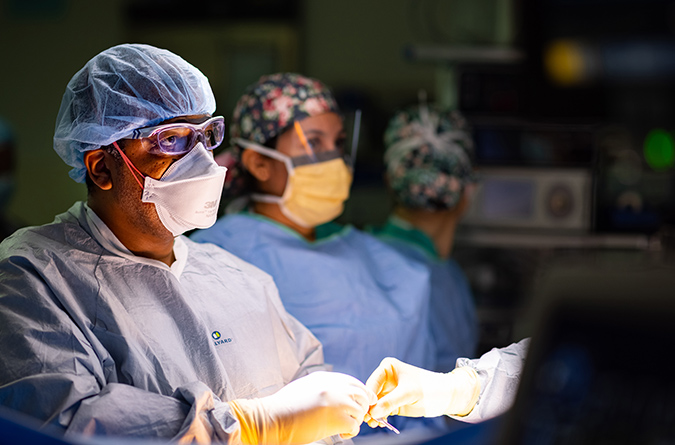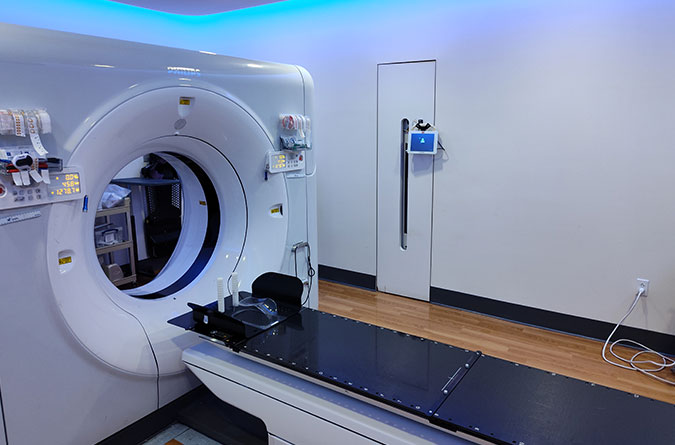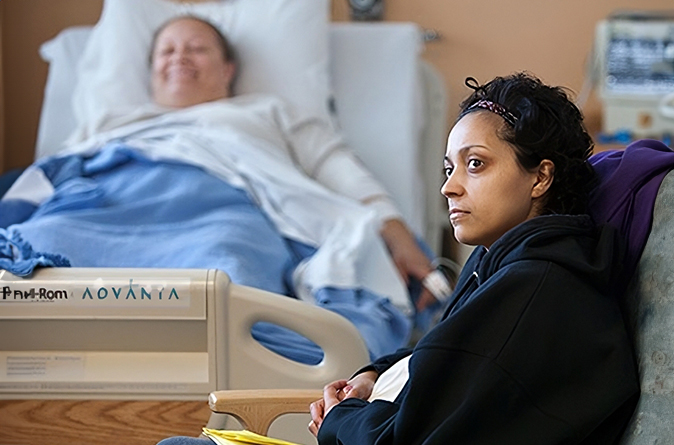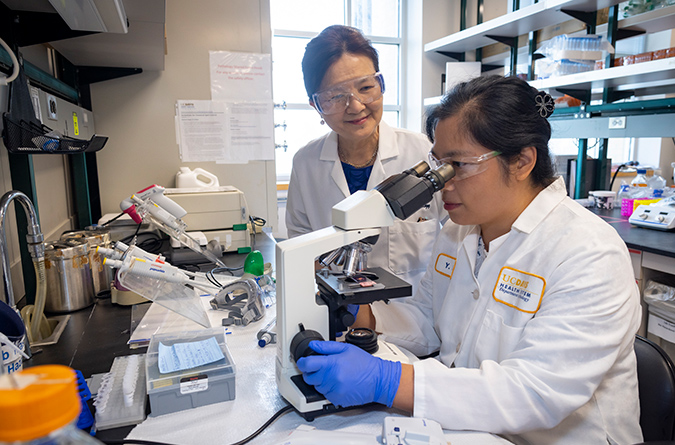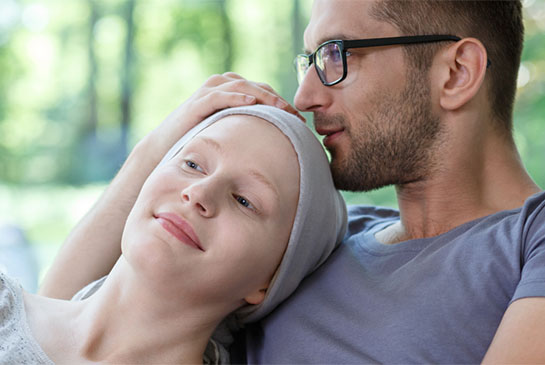Adult Cancer Care
Treatments and Services
UC Davis Comprehensive Cancer Center patients have access to a number of advanced treatments including surgery, radiation therapy, chemotherapy, stem cell transplants and immunotherapy.
In many cases, experts from a variety of disciplines convene tumor boards to analyze individual cancer cases and discuss treatment options. In addition, some tumors can be genetically profiled to enable our oncology experts to target treatments according to specific genetic mutations.
Below are available treatment options; however, cancers are highly variable, and each requires a personalized plan. Your oncologist will discuss the best approach for your unique diagnosis.
Surgery
The tumor and surrounding tissue are removed by a surgical oncologist.
Radiation Therapy
High-energy radiation is used to shrink a tumor and kill cancer cells.
Stem Cell Transplant
Replaces unhealthy blood-forming cells with healthy ones (own or donor).
Chemotherapy
Medicines used to shrink tumors and kill cancer cells are administered intravenously or taken orally.
Immunotherapy
Boosts immune system to fight cancer.
Genetic Counseling
Experts with the Hereditary Cancer Program help individuals determine cancer risks using genetic tests and offer recommendations for screening and risk reduction.
Adult Infusion Centers
Our infusion centers are staffed by nurses—many of whom are specially certified in oncology care, with expertise in adult cancers. Services include chemotherapy, blood transfusions, intravenous fluid and drug therapies, therapeutic phlebotomies and central-line management.
Social Work Services
Social workers are available to patients and loved ones, from diagnosis through treatment. They offer psychological services and practical support, like finding temporary housing.
Onsite Pharmacy Services
We offer multiple pharmacy options throughout the health system, including inpatient (infusions) and outpatient (oral medication) pharmacies staffed by pharmacists who specialize in oncology medications and infusions.
Nutrition Counseling
Oncology dietitians offer tips for staying healthy during treatment, including managing treatment-related side effects like dry mouth and poor appetite.


